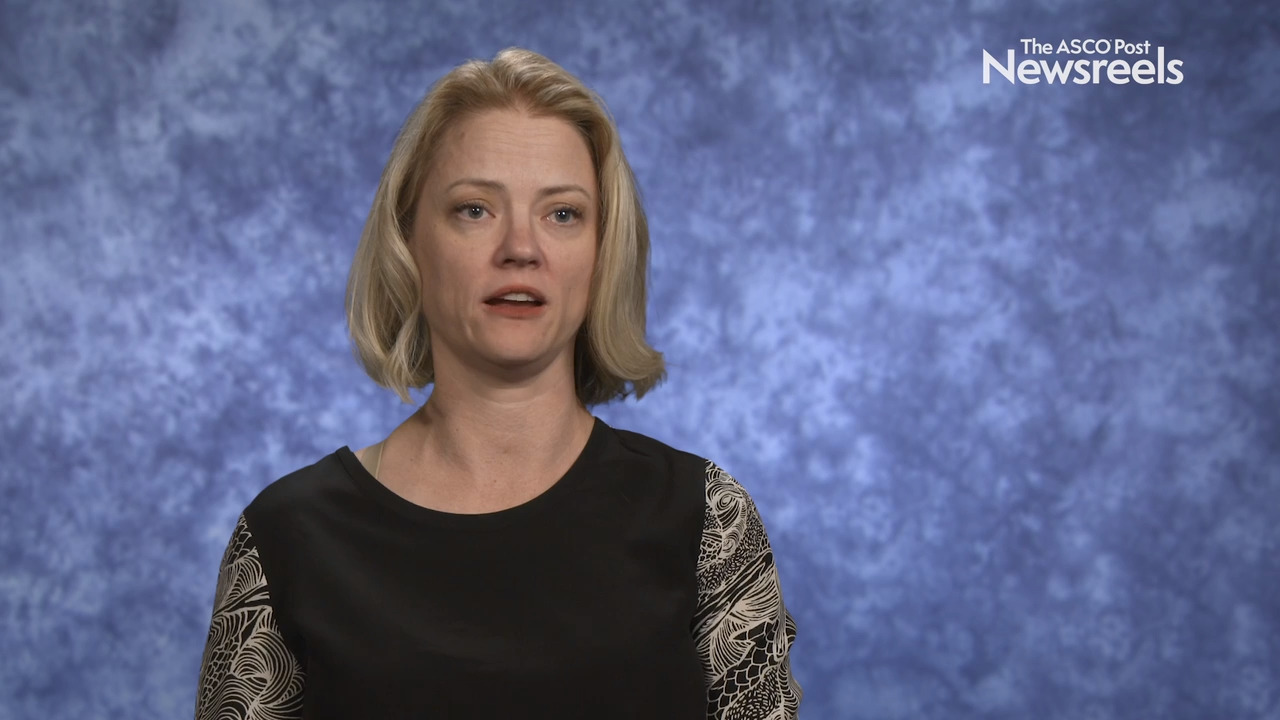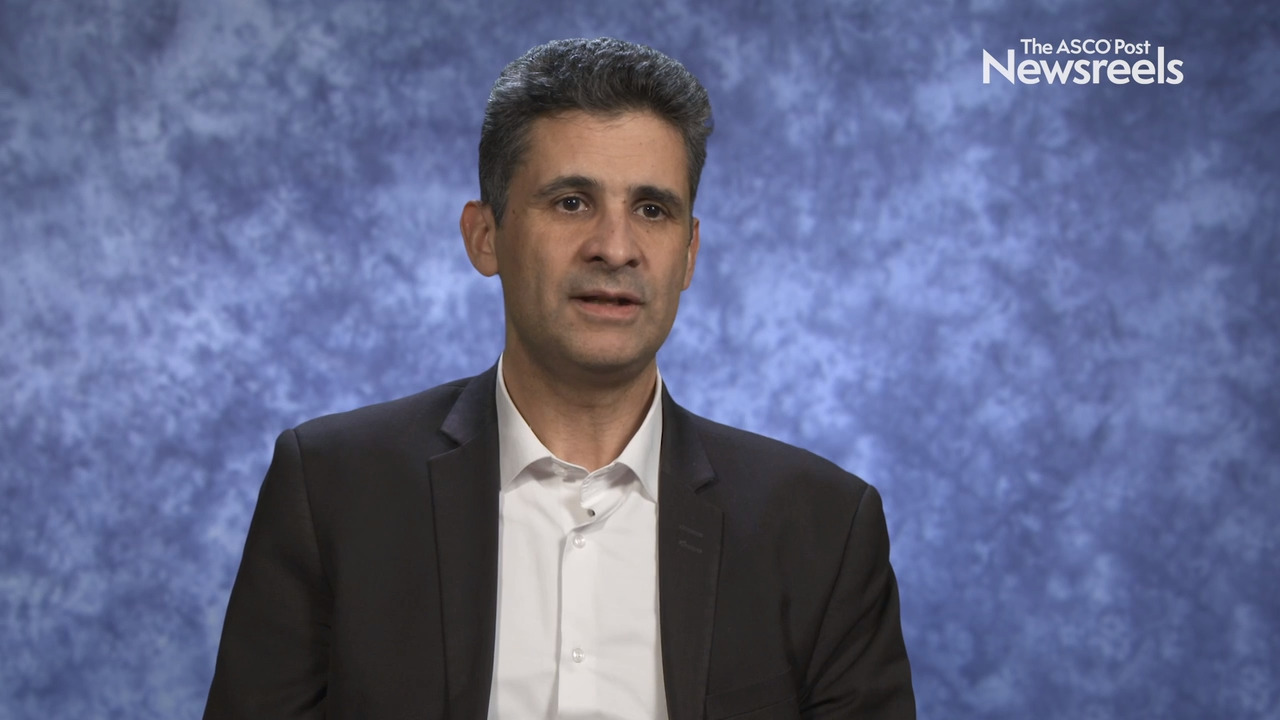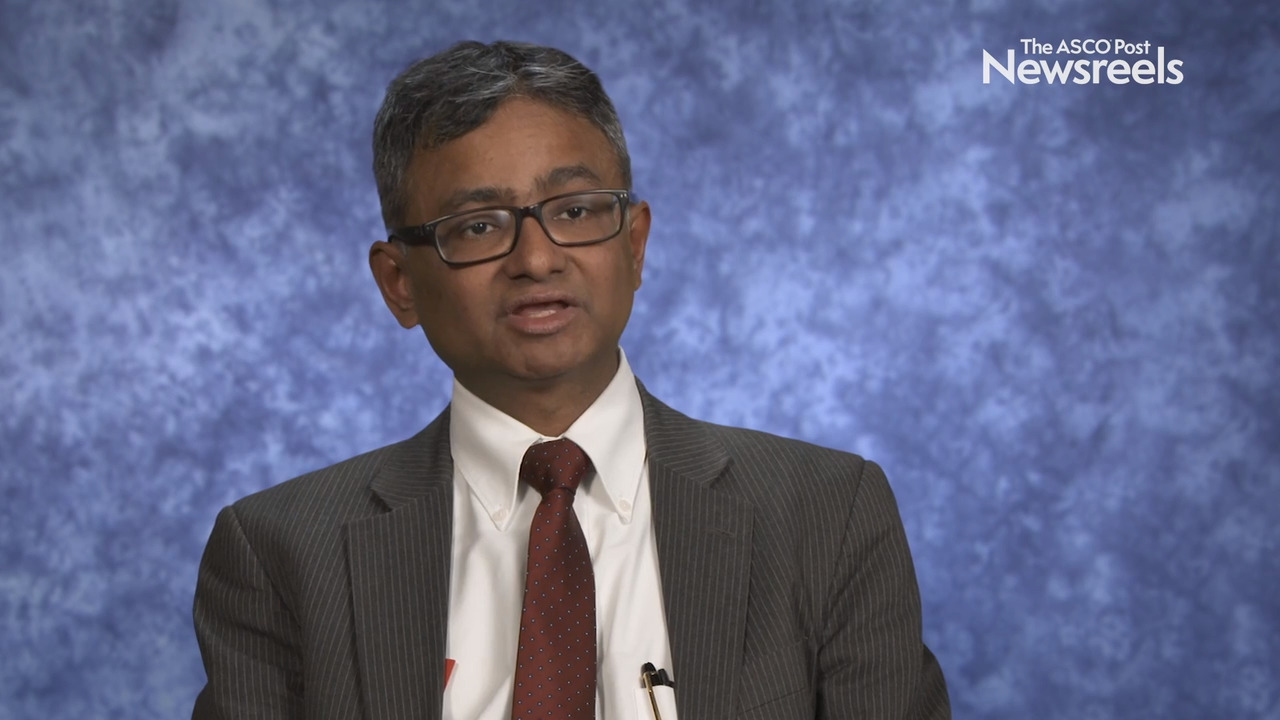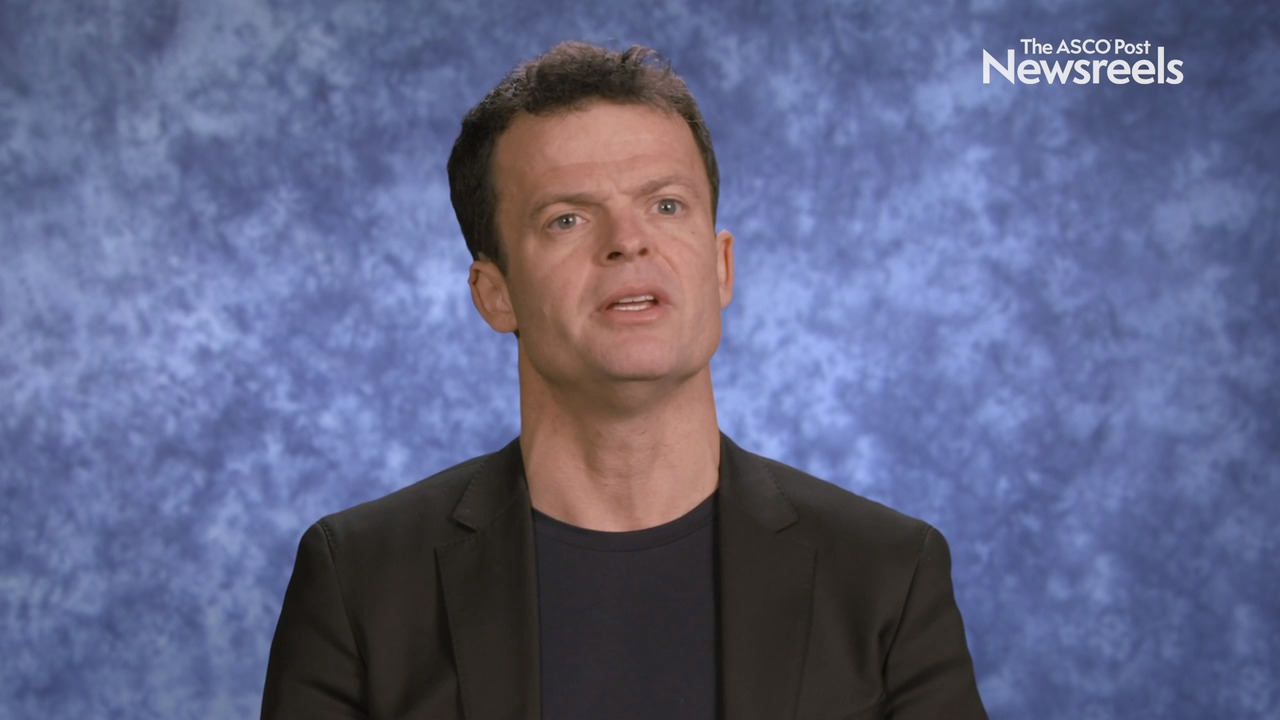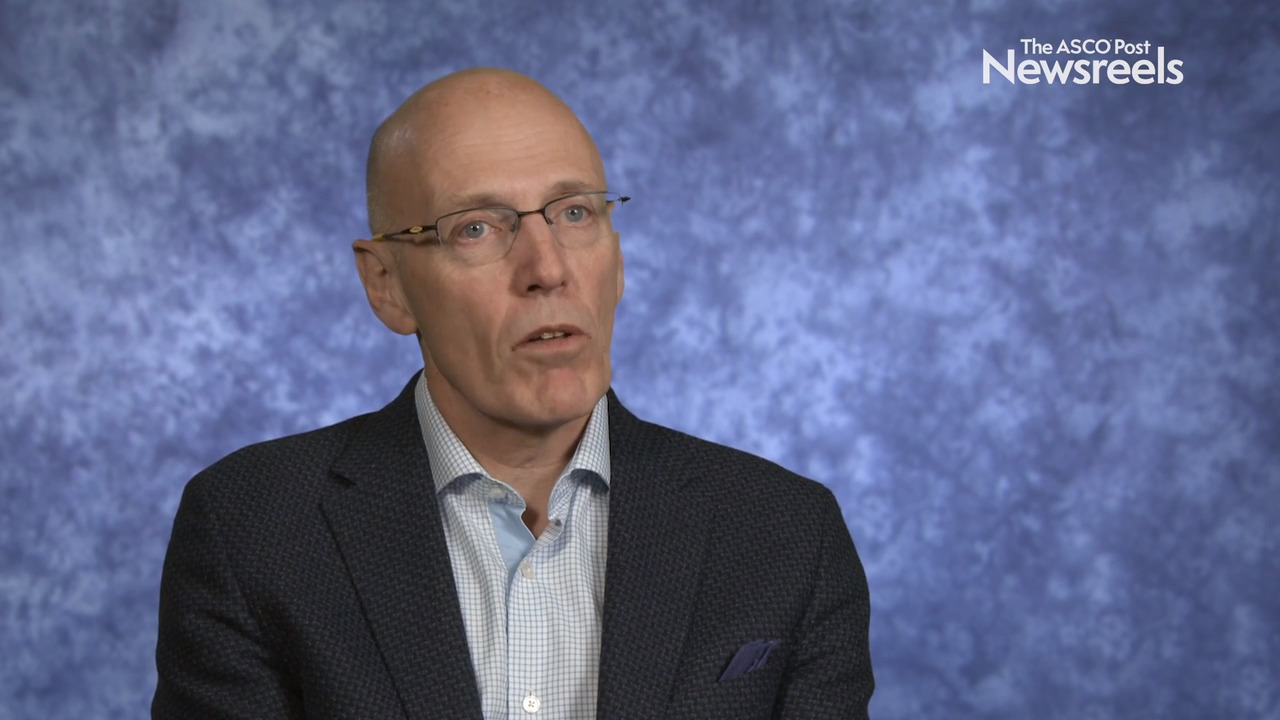Nicholas D. James, PhD, MBBS, on Bladder Cancer: Cetuximab With Chemoradiotherapy
2020 Genitourinary Cancers Symposium
Nicholas D. James, PhD, MBBS, of The Institute of Cancer Research in London, discusses results from a phase I/II feasibility study that showed the combination of cetuximab, chemoradiation, fluorouracil, and mitomycin yields high bladder cancer control rates with acceptable toxicity and quality of life, meriting further evaluation in a randomized trial (Abstract 491).
Related Videos
The ASCO Post Staff
Julie N. Graff, MD, of Oregon Health & Science University and Knight Cancer Institute, discusses study findings that show pembrolizumab plus enzalutamide after progression on enzalutamide produced clinical activity and can lead to durable responses, with a manageable safety profile. The phase III KEYNOTE-641 trial will test patients who are enzalutamide-naive (Abstract 15).
The ASCO Post Staff
Karim Fizazi, MD, PhD, of the Institut Gustave Roussy, discusses results from the CARD study, which showed that cabazitaxel improved pain, time to pain progression, and symptomatic skeletal events, as well as quality of life in patients with metastatic castration-resistant prostate cancer. The findings support the use of this agent as a standard of care (Abstract 16).
The ASCO Post Staff
Syed A. Hussain, MD, of the University of Sheffield, discusses phase II findings comparing nintedanib or placebo in combination with gemcitabine and cisplatin in locally advanced muscle-invasive bladder cancer. The data showed that adding nintedanib was safe and well tolerated, with a significant improvement in progression-free and overall survival at 1 and 2 years (Abstract 438).
The ASCO Post Staff
Thomas Powles, MD, PhD, of Queen Mary University of London, summarizes two papers on metastatic renal cell carcinoma for which he was the discussant: nivolumab in combination with stereotactic body radiotherapy in pretreated patients, and combining dual immune checkpoint inhibition with stereotactic radiation (Abstracts 613 & 614).
The ASCO Post Staff
Nicholas D. James, PhD, MBBS, of The Institute of Cancer Research in London, discusses the health economics of adding abiraterone to first-line, long-term hormone therapy in prostate cancer, and what it means for long-term survival, quality-adjusted survival, and cost-effectiveness (Abstract 204).
